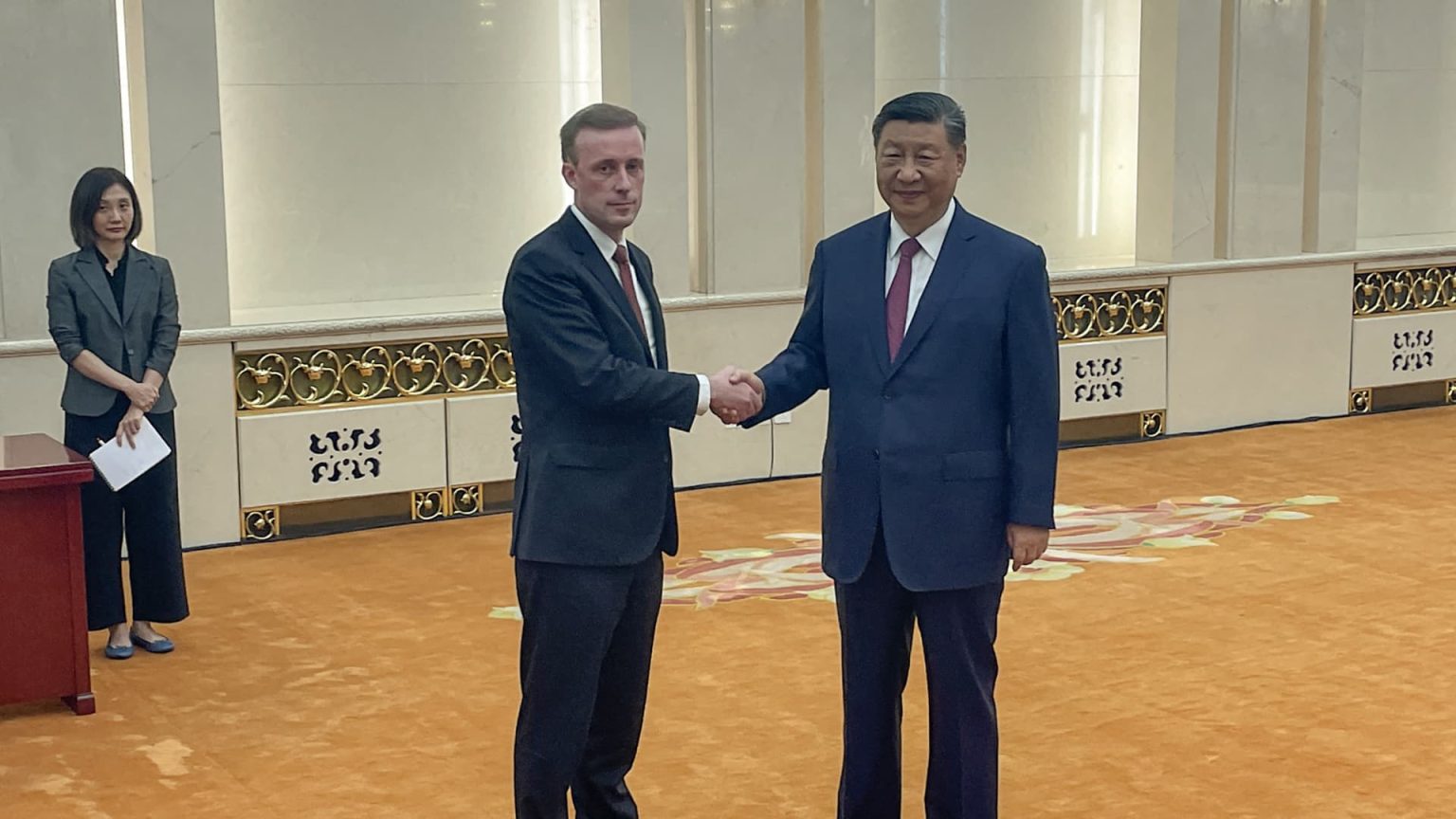Chinese President Xi Jinping met with U.S. national security advisor Jake Sullivan, expressing hope for a stable, healthy relationship between the two countries. Despite escalating tensions in recent years, Xi emphasized China’s commitment to a positive relationship with the U.S. and urged finding a mutually beneficial way for the two major powers to coexist. Sullivan’s visit to Beijing marked his first trip as national security advisor, with a planned phone call between President Biden and Xi in the near future.
The relationship between the United States and China has seen strains in various sectors, including trade, finance, and technology. Sullivan’s meetings with top Chinese officials, including Wang Yi and Zhang Youxia, aimed to address these issues and seek common ground for cooperation. The hope is to promote a relationship characterized by stability and sustainability, despite the challenges and disagreements that currently exist between the two nations. Both countries are looking for ways to navigate their differences and find ways to work together.
The significance of Sullivan’s visit to China is underscored by the rare bipartisan agreement in the U.S. political landscape regarding the need to address challenges posed by China. Even as both parties have conflicting views on many issues, being tough on Beijing is an area of common ground. President Biden’s decision to engage in a conversation with President Xi highlights the importance of communication and dialogue in managing the complexities of the U.S.-China relationship. By acknowledging the differences and seeking common interests, both countries aim to prevent conflicts and promote peaceful coexistence.
The China challenge, as framed by current U.S. officials, goes beyond specific issues like Taiwan to encompass broader concerns about technology, intelligence, and military capabilities. Phil Gordon, national security advisor to Vice President Harris, emphasized the need to ensure that China does not possess the advanced capabilities that could threaten U.S. security and interests. This perspective reflects a strategic approach to managing the U.S.-China relationship, which involves addressing not only immediate concerns but also long-term strategic competition and cooperation.
Notably, the last official trip to China by a U.S. president’s national security advisor occurred in 2016 under the Obama administration, with Susan Rice visiting Beijing. The gap in high-level engagements underscores the challenges and complexities in the U.S.-China relationship, as well as the need for continuous dialogue and engagement to address mutual concerns and prevent misunderstandings. Sullivan’s visit represents a step towards renewed communication and cooperation between the two major powers, despite the differences and tensions that exist.
In conclusion, the meeting between President Xi and national security advisor Sullivan reflects the ongoing efforts to manage the U.S.-China relationship and find ways to peacefully coexist. Despite challenges and disagreements, both countries are committed to seeking common ground and addressing their differences through dialogue and cooperation. The upcoming phone call between Presidents Biden and Xi signals a willingness to engage in constructive discussions and work towards building a stable and sustainable relationship between the two major powers. By acknowledging the complexities and challenges in the U.S.-China relationship, both countries are seeking a path towards peaceful coexistence and mutual understanding.


